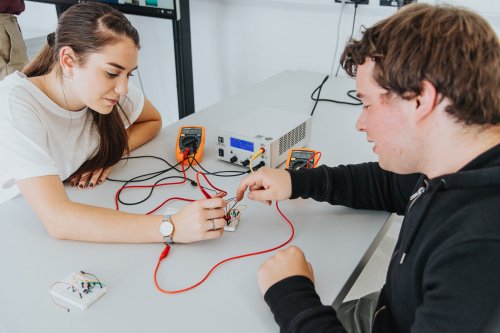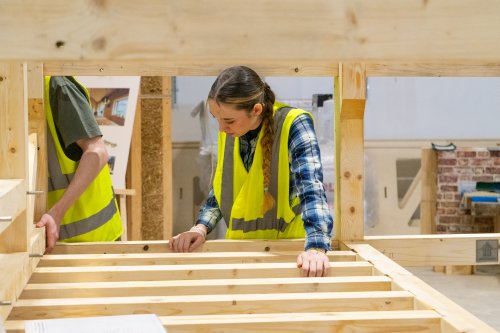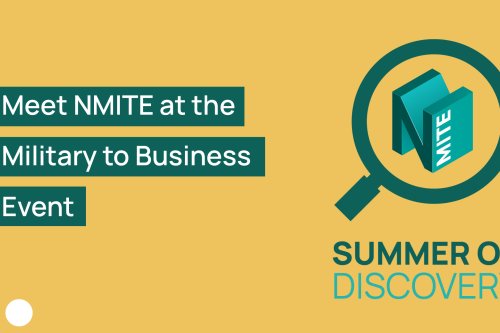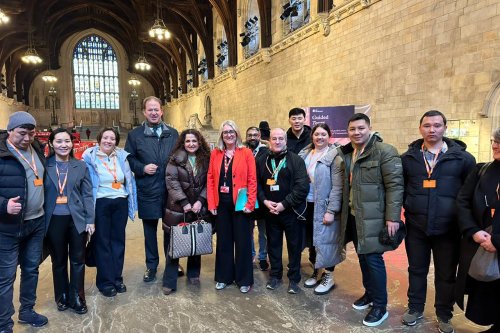The world needs engineers now more than ever — but not just any engineers.
We need engineers who can think critically, collaborate with others, and solve real-world challenges — not just memorise theories or pass exams.
It’s time to rethink what it really means to be an engineer. And that starts by recognising the importance of problem-solvers alongside technical expertise.
What’s the Difference?
Traditional, textbook engineering education has long focused on theory and content delivery.
You attend lectures, take notes, learn formulas, sit exams — and graduate with a solid foundation of technical knowledge.
But being a great engineer isn’t just about what you know — it’s about what you can do with that knowledge.
Engineering education should develop problem-solvers, not just textbook experts.
Here’s how the two approaches differ:
| Traditional Engineering Education | Problem-Solving Focused Engineering |
|---|---|
| Passive learning through lectures and textbooks | Active learning through real-world challenges |
| Emphasis on memorisation and exam performance | Emphasis on critical thinking and adaptability |
| Often individual and competitive | Collaborative and team-based |
| Controlled scenarios with known answers | Messy, open-ended problems with no single solution |
| Prepares students for tests | Prepares students for the workplace |
Problem-solvers think creatively, adapt quickly, and thrive in collaborative, real-world environments where challenges don’t come with clear instructions. In today’s world, engineering demands more than textbook knowledge – it requires the ability to solve problems that matter.
Why Problem-Solving Skills Matter More Than Ever
Global Challenges Need Fresh Thinking
From climate change to infrastructure renewal to digital transformation, the problems engineers are asked to solve are bigger and more complex than ever. Textbook answers aren't enough.
Projects Don’t Always Go to Plan
Out in the real world, things change fast — weather delays construction, budgets shrink, materials run out. Engineers need to adapt, troubleshoot, and make smart decisions under pressure.
Collaboration is Key
Most engineering projects involve working with designers, clients, manufacturers, governments, and communities. Being able to explain ideas clearly and listen to others is as important as technical skill.
Innovation is Driving New Industries
Renewable energy, smart cities, robotics, sustainable construction — these fields don’t just need technical knowledge. They need creativity, flexibility, and the ability to turn an idea into a working reality.
The NMITE Approach: Building Engineers Who Solve, Not Just Study
At NMITE (New Model Institute for Technology and Engineering), we’re not just about textbooks. We’re about turning learning into action — from day one.
Here’s how we do it differently:
- Hands-on, project-based learning
You’ll work on real-world challenges set by industry partners – not just fictional scenarios. You’ll apply your learning to solve problems that matter, right from the start. - No traditional lectures or exams
Instead of memorising information for a test, you’ll develop critical thinking, communication, teamwork, and technical skills - exactly what employers look for. - Industry involvement at every stage
Our degrees are shaped and supported by leading companies who know exactly what skills the next generation of engineers need. - Graduate work-ready
Our students leave not just with knowledge, but with confidence, experience, and the ability to step into real-world roles.
👉 Find out more about NMITE’s full list of degrees.
Engineering Needs Doers, Thinkers, and Problem-Solvers
The engineers who will shape the future won’t just be the ones with the highest exam scores. They’ll be the ones who can think, adapt, collaborate, and make real change happen.
That’s the kind of engineer we help you become at NMITE.
Ready to learn differently — and make a real difference?
👉 Explore the NMITE Difference and discover your future today.







